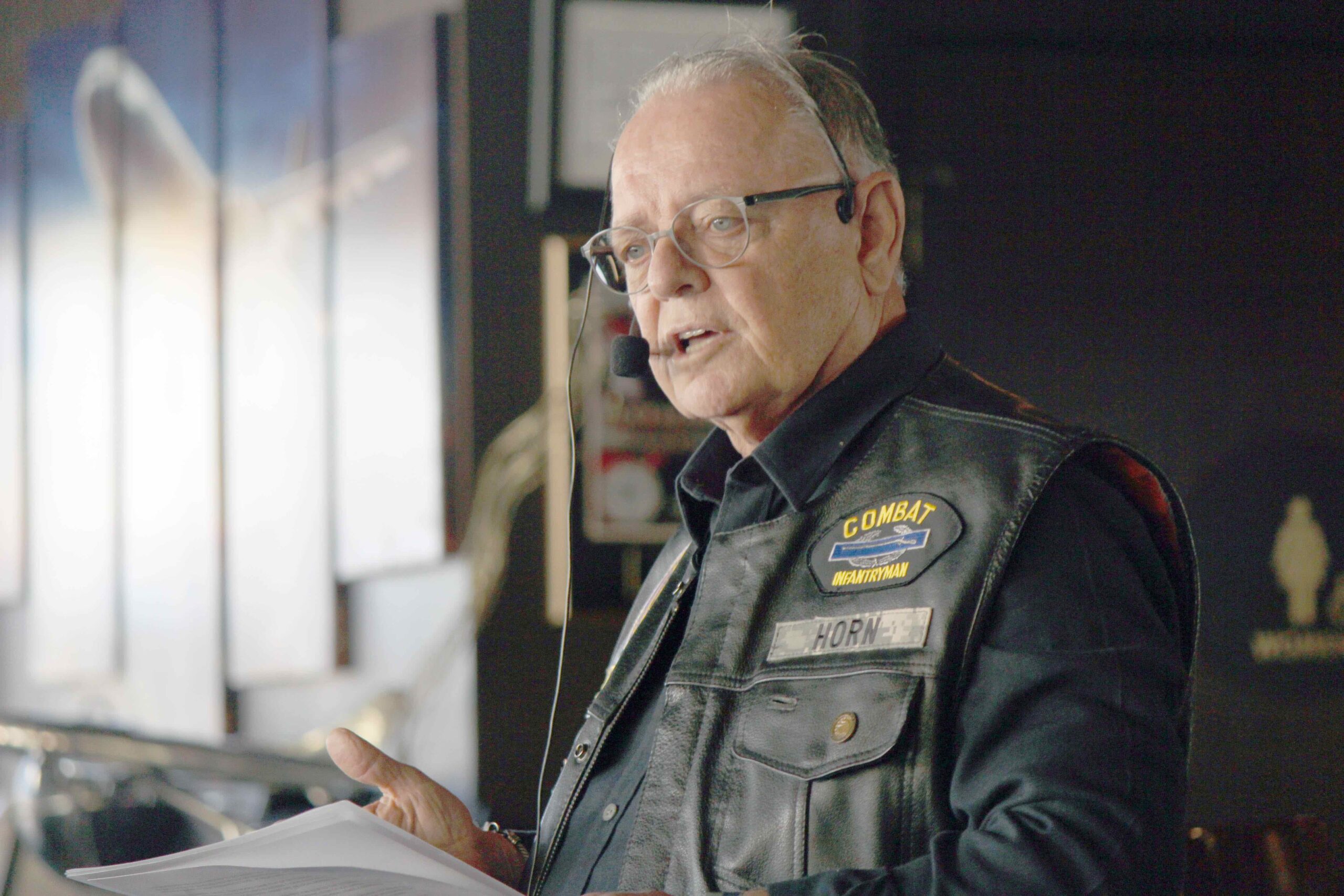When Clyde Horn got back from Vietnam, after fighting with the infantry during the Tet Offensive, he was a changed man.
But he couldn’t quite put his finger on what exactly was wrong.
“I didn’t know how to define it,” he told the Kiwanis Club of Los Gatos on Veterans Day, Nov. 11. “It took me years before I got into treatment.”
The talk was part of an event at FLIGHTS restaurant to raise money for the Veterans Memorial and Support Foundation of Los Gatos.
Trauma can change your brain chemistry and change your blood, Horn explained.
“I not only have post-traumatic stress, but I also had exposure to Agent Orange, which was a toxin in Vietnam,” he said. “I had four heart attacks.”
Horn says he still doesn’t go anywhere without figuring out where the exits are.
“I didn’t think I could love anymore when I came back from war,” he said. “I went through relationship issues constantly.”
One of the hardest things to deal with, he said, was when people in his life would expect him to be the person he used to be—the person who didn’t return from the battlefield.
“‘Get over it. You should be thankful,’” was the gist of it. “I don’t know how to describe how it feels when somebody tells that to you.”
‘The treatment that was most significant to me was getting together with other veterans’
—Clyde Horn, a veteran of the War in Vietnam
How can you put something back that’s been permanently removed? he would wonder.
“This is another way to retraumatize the survivor,” he said. “‘It’s OK. Things will get better.’ Don’t you hear that in movies all the time? When I hear that I just want to throw something at the TV.”
He needed to be around others who could understand what he was dealing with, he said.
“The treatment that was most significant to me was getting together with other veterans,” he shared. “We could talk with our eyes, or with our body expressions.”
But that alone wasn’t enough, says Horn, who is also a Kiwanis member.
“Some needed to have medication; some needed to have hospitalization; some needed to be in therapy,” he said. “And others needed to find ways within themselves that could give them something beyond other treatments that were out there.”
Horn says for him it was the outdoors and artistic endeavors that gave him purpose.
“I found when I was out in nature, I felt beauty,” he said. “But that’s not everybody’s experience.”
He’s also taken to writing, including two books, “PTSD in Pictures & Words” and “Veteran Guilt in Pictures & Words.”
According to Horn, today’s veterans do have more support.
“But to me one of the worst things that we don’t address is people with traumatic brain injuries,” he said. “They can be obnoxious and they can be hateful.”
One of the audience members, Nancy Whitney, told the Los Gatan she thought the presentation was excellent because her late husband, who was in the marines, had faced similar struggles with PTSD.
He fought in Vietnam from 1966-1968.
“My husband was on the teams that explored the roads and made the camps and the bunkers for people to follow,” she said. “He started out as a private and within two years he was a corporal.”
Those days cast a dark shadow across the rest of his life.
“Serving in war takes something from you and you never get it back,” she said, adding her family didn’t quite get what was happening. “There is a need, as (Horn) said, to get up and walk around and not be social a little bit. And people don’t understand that. They think it’s rude or they think somebody should be over this situation.”
Even after 38 years together, there were still days where Whitney would find herself walking on eggshells, she said, adding she was happy to hear the way Horn spoke about such a difficult subject.
“The way he addressed it, in this talk, was to let them know that post traumatic stress is real and it’s individualistic—and there’s many different triggers,” she said. “Basically he addressed the elephant in the room.”










